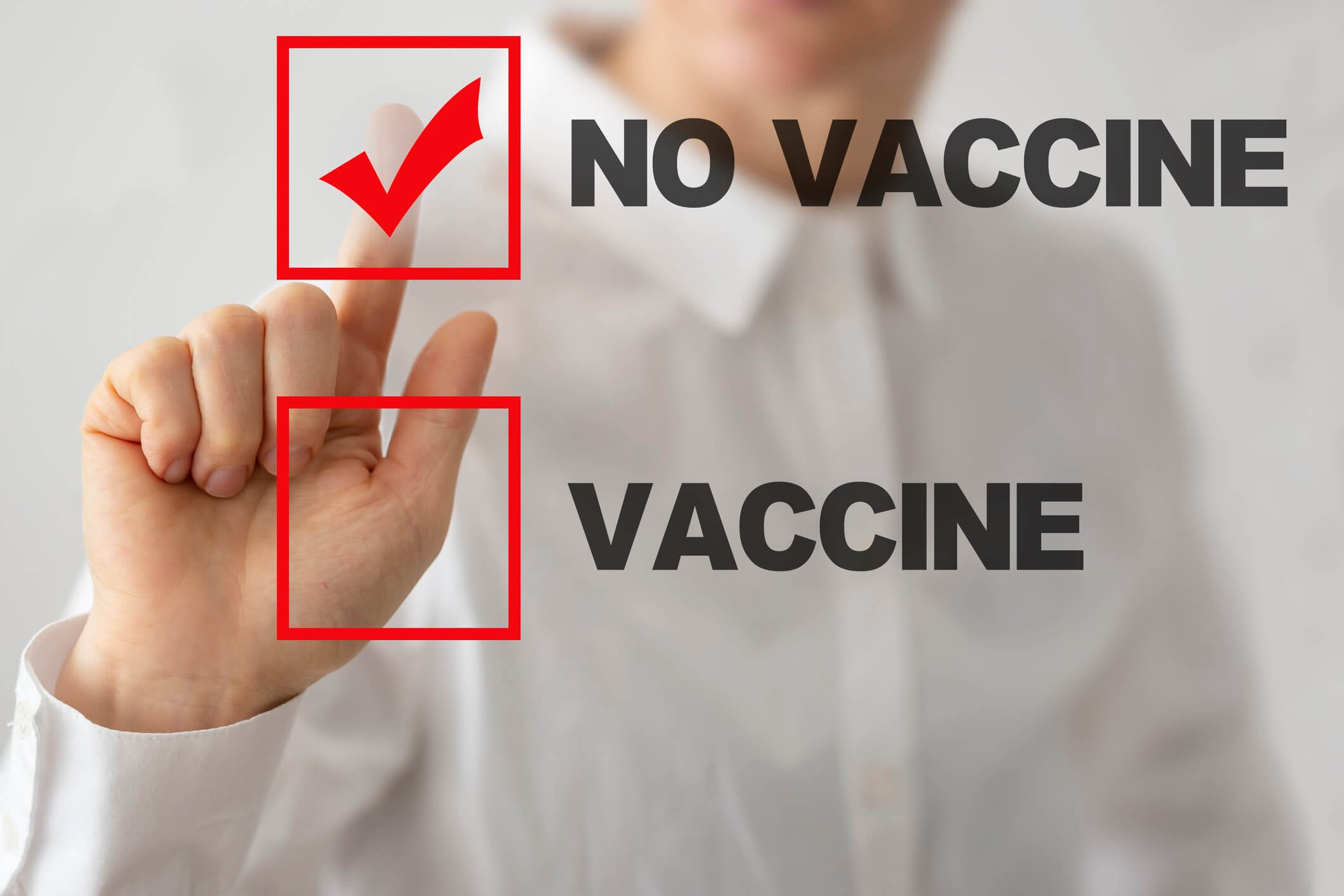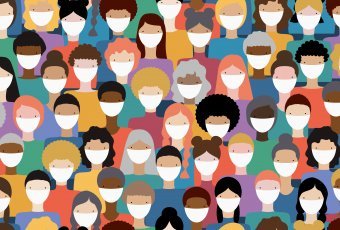COVID-19 | March 1, 2021
Understanding and Overcoming Vaccine Hesitancy
Reading Time: 3 minutes

The biggest hope to ending the COVID-19 pandemic is through mass-scale vaccinations to achieve herd immunity. This kind of public health initiative requires a majority of the public to be willing to receive a vaccine. However, a significant portion of Americans are “vaccine hesitant.”
Vaccine hesitancy is defined as “the reluctance or refusal to vaccinate despite the availability of vaccines” and was listed as one of the top ten threats to global health by the World Health Organization in 2019.
In the U.S., racial and economic equity appear to be playing a vital role in COVID-19 vaccine access and acceptance. In a January poll conducted by the Kaiser Family Foundation (KFF), more than four in ten adults said they would get the COVID-19 vaccine when it is available to them for free. Black and Hispanic adults and those with lower incomes were less likely to have received or know someone who had received at least one dose of the vaccine than their White and higher-income counterparts. There was also a significantly greater proportion of Black and Hispanic adults who expressed reluctance to receive the vaccine.
Drivers of Vaccine Hesitancy
Perhaps the biggest driver of coronavirus vaccine hesitancy among vulnerable populations is mistrust. This should lead to the question: “What does it mean to be a trustworthy provider of health care?”
There is a long history of being exploited or lied to that has cultivated a deep distrust of the medical establishment within minority communities. The Tuskegee research on Black men with syphilis, the forced sterilization of poor, disabled, and Black women, and the sterilization of thousands of Native American womenwithout their consent are several examples. A 2018 study concluded that Black men, who are diagnosed with prostate cancer at almost double the rate of White men, were often unwilling to participate in research studies or accept new diagnostic tools because of mistrust.
Lack of information and misinformation are also fueling reluctance to get vaccinated. The KFF poll found that well over half of Black and Hispanic adults feel they do not have enough information about vaccine side effects or effectiveness. Overall, the vaccine hesitant respondents were more likely to believe or be unsure about some common vaccine myths.
Potential Paths to Trustworthiness
The NIH Behavioral and Social Sciences Research Coordinating Committee recently published an in-depth report that identifies evidence-informed strategies for fostering COVID-19 vaccine confidence across diverse populations. One of the most effective ways to overcome vaccine hesitancy is through local, community-level outreach. Here are steps (adapted from the NIH report) that community-based organizations can take:
- Understand the real whys. It is important to avoid making assumptions about why vaccination rates are lower in racial and ethnic communities. Finding out the underlying reasons will enable you to communicate with community members more effectively.
- Honestly address concerns. People expect honest answers to help them make informed decisions. Avoid glossing over what is known, such as vaccine side effects, and to acknowledge what is still unknown.
- Tailor the messaging. There is no one-size-fit-all approach to communicating to diverse populations. Use what you know about why community members are hesitant to develop messaging campaigns that will resonate.
- Inspire trust. Work with trusted messengers, such as clergy or local activists, to deliver vaccine information. Feature stories about community members and local representatives getting vaccinated. Train community members to educate others about the vaccine and dispel myths and misconceptions.
- Ensure equitable access. Equip trusted community organizations and networks to participate in vaccine planning, education, and administration to facilitate equitable access to vaccinations.
- Tap into available resources. The Biden administration recently awarded millions of dollars to organizations that advocate for Black, Hispanic, Asian, and Native Americans to increase their COVID-19 vaccine education outreach.
Resources for Addressing Vaccine Hesitancy
U.S. Department of Health and Human Services (HHS) COVID-19 Talking Points
The NIH Community Engagement Alliance (CEAL) – Learning About Vaccines
Asian & Pacific Islander American Health Forum (APIAHF) – COVID-19 Resources
Centers for Disease Control and Prevention (CDC) – COVID-19 Vaccine Information
Community-Based Organizations COVID-19 Vaccine Toolkit (CDC)
You might also like...

Understanding the Obstacles to Telehealth
COVID-19, GENERAL, TECHNOLOGY | 3 MIN READ

The Vital Role of Community-Centered Care ...
COVID-19 | 3 MIN READ

6 Ways Healthcare Professionals Can Suppor...
COVID-19 | 3 MIN READ
